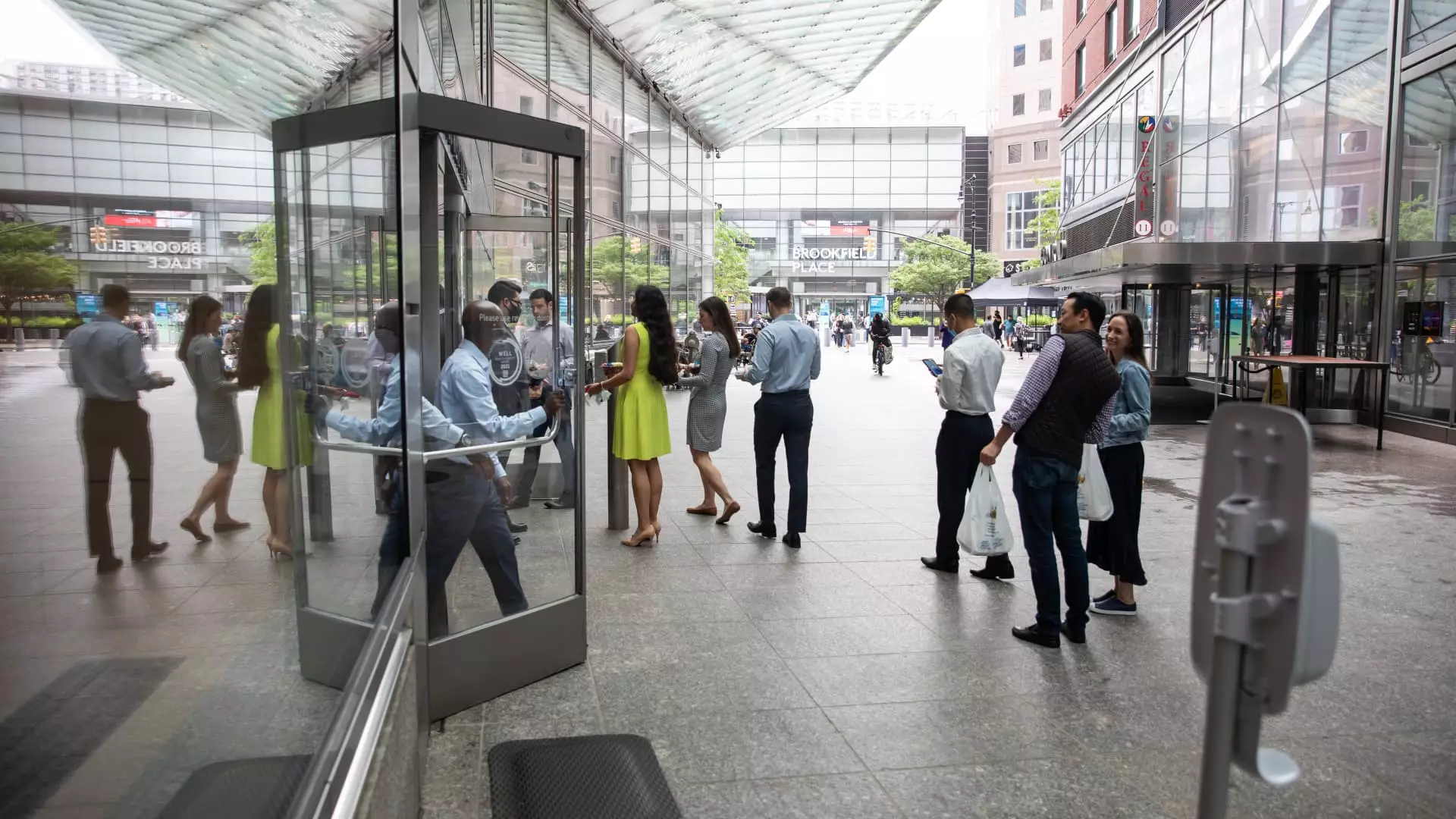As we delve into the economic landscape of 2025, a marked shift in the dialogue among corporate leaders comes to the forefront: tariffs are now overshadowing the discourse around artificial intelligence. An alarming 350 calls from S&P 500 companies in the first quarter showcase a surge in mentions of tariffs, while discussions on AI remain comparatively subdued. This changing tide points not only to immediate fiscal concerns but also reveals deeper layers of disruption affecting business forecasts and overall market sentiment.
The recent announcement of stringent tariffs by the Trump administration has rattled C-suites and Wall Street, alike. This new focus on trade policies, overshadowing the once-ubiquitous AI buzz, signals a crisis that extends beyond dollar signs—it has permeated the psychology of corporate strategy and risk assessment. Companies once buoyed by narratives of innovation and technology now find themselves grappling with the looming specter of economic decline prompted by rising costs and trade restrictions.
CEO Sentiment: A Clear Forecast for Slowdown
Recent surveys underline the gravity of this tariff-induced anxiety, revealing that more than 60% of CEOs anticipate an economic slowdown within half a year. The realization that tariffs will disproportionately impact their bottom lines is weighing heavily on decision-makers, with nearly 75% believing that these levies will hinder their operations. Companies are not just facing inflated expenses; they are contending with an unpredictable regulatory environment that complicates future business plans.
Christopher Clulow, the head of investor relations at Cummins, struck a chord of uncertainty that resonated throughout the earnings calls. His assertion that we are navigating “uncharted territory” underlines the unpredictable fallout of tariff implementation. Companies are left trying to forecast their performance amidst shifting sands, often feeling compelled to maintain traditional financial outlooks merely to shield themselves from the nuances of ever-changing trade policies.
The Reluctance to Adjust: Managing Viewer Perceptions
Reflecting on these tumultuous times, some firms have taken the cautious route of leaving earnings projections unchanged despite robust business performance. Solventum, a nascent medical equipment maker, stands as a prime example of this hesitance. CEO Bryan Hanson openly acknowledged that tariffs would be a significant headwind for the company, despite stronger-than-expected business momentum. Here lies a paradox of contemporary commerce: how do businesses thrive when the very factors that ought to foster growth are stifled?
This reluctance to modify outlooks indicates a broader existential dread within the corporate ecosystem. Companies are increasingly aware that consumer sentiment—an elusive but powerful metric—is severely affected by tariffs and the accompanying fears of economic instability. The University of Michigan’s consumer sentiment index, for instance, has plummeted to unprecedented lows, reflecting consumer anxiety tied directly to the unpredictability of pricing and availability of goods.
The Divergence of Views: Critique on Trade Policies
As executives grapple with the implications of tariffs, a notable trend emerges: a growing critique of the administration’s policies. At least some corporate voices are urging a reconsideration of these hard-hitting trade strategies. This pushback is especially evident in remarks made by leaders like Eli Lilly’s CEO, David Ricks, who articulated a nuanced stance supporting domestic investment while simultaneously cautioning against disruptive tariffs. Such candid discussions are vital within the space of corporate governance, as they contribute to an informed dialogue about potential policy re-evaluations.
The trepidation surrounding tariffs is not just an economic overshot; it is a rallying cry for corporate responsibility that echoes through the halls of power in Washington. Business leaders are increasingly aware that their operational reliability is tied not only to profits but also to the social and economic climate fostered by trade policies. In this context, the role of business transcends simple profit-making; it ventures into the territory of stewardship over the economy itself.
The corporate landscape of 2025 underscores a resurgent emphasis on tariffs, triggering palpable anxiety and disruption. This new focal point restructures conversations traditionally dominated by technological advancements and innovation. As corporates recalibrate their strategies in light of trade restrictions, the overarching sentiment is one of cautious navigation through uncertain waters—a phenomenon that could define the economic narrative for years to come.

